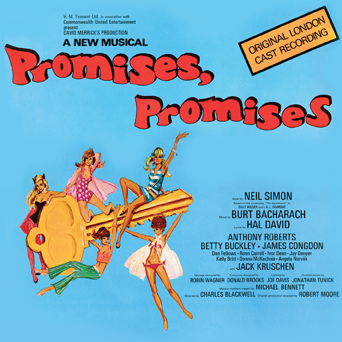My 2013 theatergoing started with my first trip to the Metropolitan Opera in about 4 1/2 years. Out of the blue, I got a message from Roxie asking me if I was interested in seeing Turandot and I thought for about a split second before saying yes. Puccini’s music is glorious – ask me some time to tell you about my experiences playing one of Cio-Cio San’s cousins in Madame Butterfly sometime – and this opera intrigued me. I only new the famed “Nessun Dorma,” a showstopper if there ever was one but I was curious since I knew it was Puccini’s final work, and that he died leaving it unfinished. I was captivated by this bizarre piece with its antiquated gender politics, bizarre Asian aesthetic and similarities to The Taming of the Shrew. Also, I was amused that they stopped to sing to the moon for what felt to be fifteen minutes. But, oh those melodies! And that glorious singing! Zeffirelli’s production is first-rate, and that set is to-die-for; however I had forgotten that Met Opera intermissions are longer than the norm. Here, the first intermission was 45 minutes, longer than the first act itself. It didn’t detract as it allowed Roxie and I the chance to catch up on other things, and to plan future visits to the opera, as I don’t intend on staying away another four and a half years.
Walking through Midtown recently, I noticed that the Music Box Theatre has replaced its traditional marquee with a digital one since the closing of One Man, Two Guvnors. It’s not the first one I’ve noticed; I don’t know when it happened but the classy New Amsterdam Theatre now houses one as well. Now, I understand that digital is the way of the future, but there’s an utter charmlessness in these LED screens. Instead of a billboard or sign that stands out, these two theatre marquees become just more billboards for tourists to ignore. And frankly, for being all state of the art, the quality is cheap. Let us hope this lunacy is just a trend.
I recently read Maurice Walsh’s short story “The Quiet Man,” which later became the basis for the eponymous film classic – and one of my all-time favorites starring John Wayne and Maureen O’Hara. The 1952 Oscar-winner is receiving its long-overdue Blu-ray release this month (and by all accounts it looks exquisite) so I’ve been paying attention and felt it time to check out the brief, 20-something page story about short boxer Paddy Bawn Enright, his wife Ellen Roe Danaher and his feud with his brother-in-law Red Will Danaher. And as fate would have it, the Irish Repertory Theatre will be presenting the first NY revival of the musical adaptation of the film/short story, called Donnybrook! with a score by Johnny Burke and book by Robert McEnroe, starting in February.
The show ran only 68 performances in 1961, but featured lovely songs and performances from Art Lund, Joan Fagan, Susan Johnson and Eddie Foy, Jr. (Also in the cast was Philip Bosco as Will Danaher). The original cast album has never been officially released digitally (though some rogue labels offer an mp3 for sale on iTunes and Amazon), but I was fortunate to receive a cassette tape copied from the record album. (Side B was the musical version of How Green Was My Valley – another Maureen O’Hara classic – called A Time for Singing). I later acquired the Kapp Records gatefold LP, which I continue to play every so often. The cast, headed by James Barbour and Jenny Powers looks to be top notch, so I look forward to checking that out soon.
In other flop musical news, both Dear World and Darling of the Day are getting their first UK productions in the next couple of months. The wondrous Betty Buckley will play the Madwoman of Chaillot, which is cause for much excitement, at the Charing Cross Theatre through February and March. The latter, however, interests me more on a personal level. I have long been a champion of Darling of the Day, unavailable for licensing since its 1968 premiere, ever since I first heard the original cast album (which is a must for any show music fan). The Styne-Harburg score is delightful, and Tony-winning star Patricia Routledge is the pinnacle of loveliness as the show’s leading lady. So I am hoping to fly out to see this one, which will star Kate Secombe as Alice Challice (the Routledge role) and Rebecca Caine as Lady Vale. No word on the gents just yet, but the show plays the Union Theatre from March 20 to April 20.


